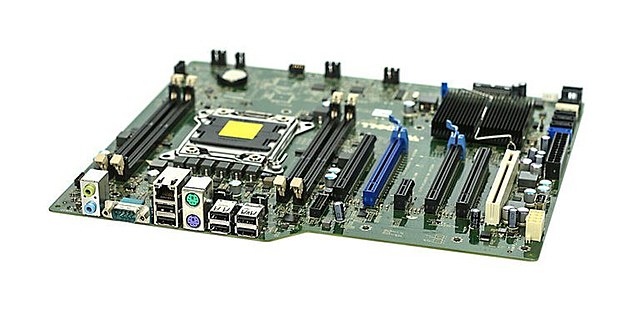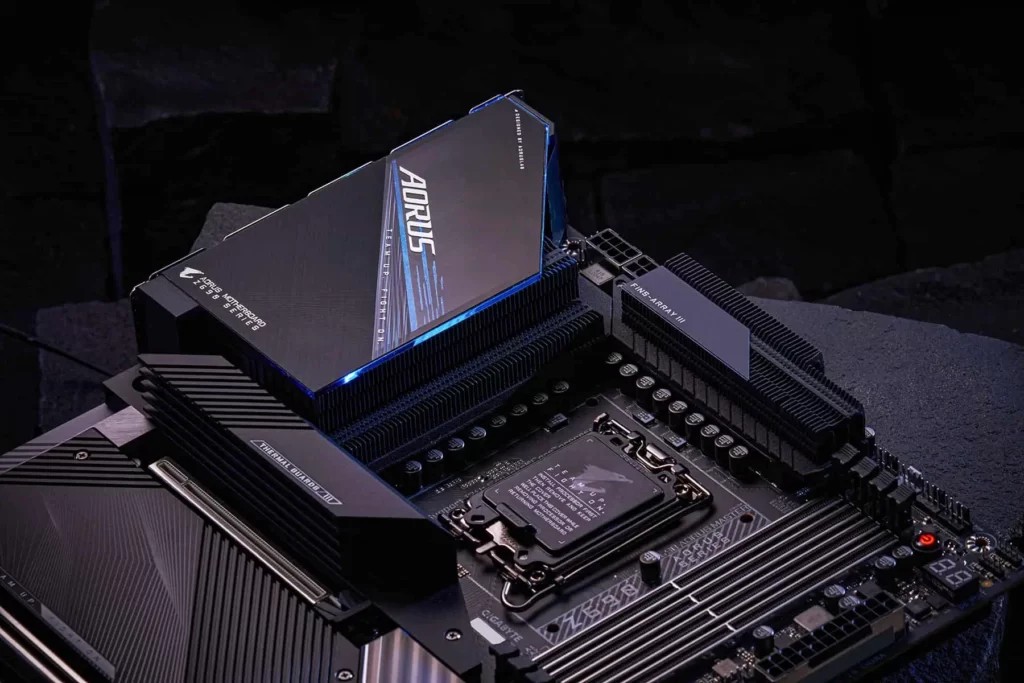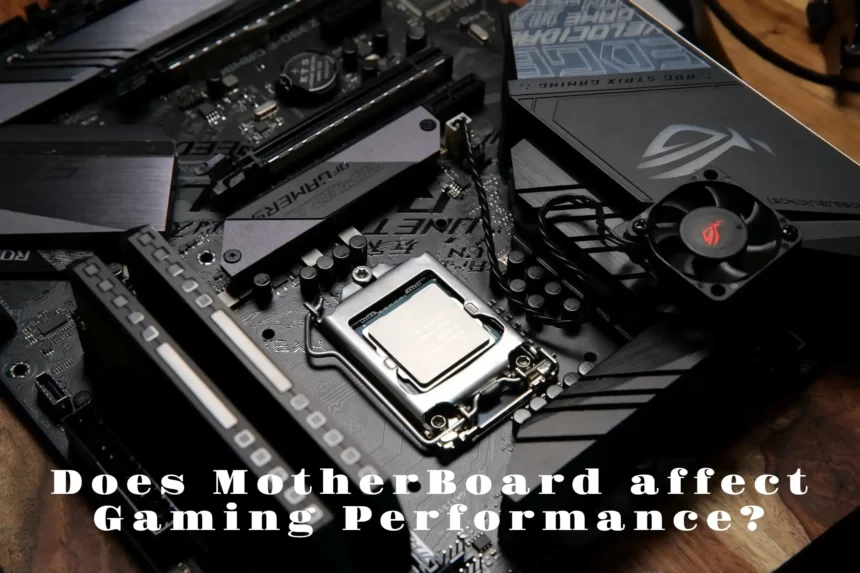Yes, Motherboard does affect gaming performance and also has a significant impact on FPS, Stability, and overall gaming performance. In this article, we will cover all misconceptions and interrelations between motherboards and overall gaming performance.
What is Motherboard?
A motherboard serves as the foundation upon which all other hardware components are installed, facilitating communication between the CPU, GPU, RAM, storage devices, and peripherals. Without a motherboard, you cannot build a gaming system so it is essential to know what type of motherboard should be used its key features, and all available ports.


Is it important to Choose the right Motherboard for Gaming?
Getting an appropriate motherboard is important for optimizing gaming performance factors such as compatibility with CPU, GPU, expansion slots to add additional components, and support for overclocking can significantly impact the gaming experience so you need to get the right motherboard if you don’t want any further headache about performance.
Here are the following reasons why getting a right Motherboard is essential for Gaming:
1. Influence of Motherboard on CPU Performance:
The motherboard plays an important role in establishing the compatibility and performance of the CPU. Features such as socket type, chipset compatibility, and total power delivery directly impact the CPU’s performance in gaming tasks.
2. Impact on GPU Performance:
Similarly, the motherboard affects GPU performance by providing PCIe slots for graphics card installation, ensuring sufficient bandwidth and compatibility for high-end GPUs crucial for smooth gaming experiences. And also provides a connection between the CPU and GPU.
3. Memory and Storage Considerations
Motherboards determine the type of RAM that can be installed, affecting system memory bandwidth and gaming performance. Additionally, storage speed and type impact game loading times and overall system responsiveness. Try to get the latest LPDDR 5x RAM sticks, and UFS 5.0 Storage devices.
4. Overclocking and Stability
Gamers usually seek motherboards with good power delivery systems and overclocking features to push their hardware to its limits. However, stability and reliability are paramount, as unstable overclocks can lead to system crashes and performance degradation.
5. BIOS and Firmware Updates
Regular BIOS updates from manufacturers can maintain performance optimizations, bug fixes, and compatibility improvements, enhancing gaming performance and system stability over years of usage.


6. Connectivity and Peripheral Support
Modern motherboards offer various connectivity options, Like USB ports, audio jacks, Ethernet, and Wi-Fi, essential for connecting gaming peripherals and accessories for an excellent gaming experience.
7. Compatibility with Gaming Software and Drivers
Ensuring compatibility with gaming software and drivers is important for flawless performance. Motherboards with driver support and compatibility with DirectX and Vulkan enhance gaming experiences.
What are the Best Motherboards Available in Market?
If you buy something from our links it will help our site to be operational and provide you with valuable content and your purchase is much appreciated.
Conclusion
In the end, Motherboard has a very big impact on gaming performance. So, having the right motherboard is essential for an immersive gaming experience if you don’t choose your motherboard wisely it may cause future problems such as incompatibility with hardware like CPU, GPU, RAM, etc. So it’s better to get a suitable motherboard that will be compatible with your hardware and also provide you with a seamless gaming experience so you don’t need to come here to read this article again.
FAQ’s
Q: Does the motherboard affect gaming performance significantly?
- A: Yes, the motherboard plays a crucial role in gaming performance by influencing CPU and GPU compatibility, memory bandwidth, storage speeds, and system stability.
Q: What factors should I consider when choosing a motherboard for gaming?
- A: When selecting a motherboard for gaming, consider factors such as compatibility with CPU and GPU, expansion slots, memory support, overclocking capabilities, and connectivity options.
Q: Can upgrading my motherboard improve gaming performance?
- A: In some cases, upgrading to a more advanced motherboard with better features and compatibility can improve gaming performance, especially if the existing motherboard is outdated or limiting hardware capabilities.
Q: How do I know if my motherboard is compatible with my gaming hardware?
- A: Check the motherboard’s specifications and compatibility lists provided by manufacturers to ensure compatibility with your CPU, GPU, RAM, and other hardware components.
Q: Are expensive gaming motherboards worth the investment?
- A: Expensive gaming motherboards often offer advanced features such as overclocking support, robust power delivery, and premium build quality, making them worthwhile investments for enthusiasts seeking optimal gaming performance and reliability.







